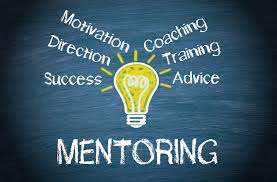When done well, mentoring is a proven tool for engagement and retention, yet it’s often underutilized, overlooked, or poorly communicated. In our compliance profession, many folks hold themselves out as mentors. The ladies of Great Women in Compliance, the founders Lisa Fine and Mary Shirley, and the current crew, including Hemma Lomax, Sarah Hadden, and Ellen Hunt, all are compliant mentors. Nick and Gio Gallo are two who immediately come to find each other.
But what about inside the corporate world? What can compliance professionals and business leaders do to transform them into impactful retention strategies? Although 98% of Fortune 500 companies have mentoring programs, only 37% of professionals benefit from them. Why are mentoring programs failing to deliver on their promise? In a recent HBR article entitled, Why Mentoring Programs Fail — and How to Make Them Worthwhile, authors Andy Lopata, Ben Afia, and Ruth Gotian examined this question.
They found that the issue lies not with mentoring but in the underutilization and ineffective reach of many mentoring programs. Programs are frequently confined to a small group of employees or need more communication and visibility to attract participation. Many potential mentors might need more time to be able to commit to meaningful mentorship, leading to a cycle of under-engagement. The authors have developed strategies for corporations, and I have adapted their work for mentoring in the compliance profession.
The Underutilization Problem: A Disconnect in Awareness and Access
The issue is outside mentoring itself. Studies consistently show its ability to boost productivity, engagement, and employee satisfaction. The real problem lies in underutilization and visibility. Many mentoring programs are confined to select groups, poorly communicated, or lack structure. The problems include employees needing to be aware of these programs or learning to access them. Potential mentors are often overwhelmed with their workloads and hesitate to commit. Finally, the benefits of mentorship could be better communicated, leading to disinterest.
Yet, as the authors report, there is good news. “These are solvable problems.”
Tailoring Communication: Meet Employees Where They Are
The manner in which mentoring programs are communicated makes all the difference. A generic, top-down announcement will not resonate in today’s workplace. Employees, particularly Millennials and GenZers, want personalization. They see themselves as consumers of workplace experiences, choosing opportunities that align with their needs and goals.
To engage employees, communication about mentoring programs must reflect these preferences. Think of it as marketing an opportunity to your internal audience. Here’s how you can reframe communication to connect with different employee motivations:
- Highlight Practical Benefits. This means to focus on what is in it for them. Spell out how mentoring will advance their careers, help them gain new skills, or open doors to leadership opportunities. Employees need to see tangible outcomes in order to care.
- Align with Organizational Values. This is a great opportunity to connect mentoring to your company’s broader culture and mission. If mentorship ties into your long-term organizational goals, employees seeking alignment with corporate values will feel inspired to participate.
- Promote Personal and Professional Growth. Many employees want opportunities to grow, not just professionally but personally. Position mentoring as a tool for achieving long-term career aspirations and self-improvement. The bottom line is that by tailoring your communication to individual preferences, you create a more interesting invitation to participate.
The Power of Storytelling: Making Mentorship Tangible
Most compliance professionals need to connect storytelling and mentorship. Yet, for most people, data and directives rarely inspire action. Storytelling can move people. Companies can make mentoring programs more engaging by spotlighting genuine success stories of employees whose careers were transformed through mentoring.
Storytelling works for several reasons. First, it humanizes the benefits of mentoring. Employees see themselves in others’ experiences. Next, it creates aspiration. Hearing how someone else achieved success makes the program feel attainable. Finally, it provides proof of impact. Employees are more likely to believe in a program if they see results.
There are multiple approaches to storytelling in mentoring. They include the sharing of video testimonials from mentors and mentees. You can feature mentoring success stories in newsletters and town halls. Overall, company culture will move forward by celebrating mentorship milestones, such as promotions or achievements in your organization. Most importantly, instead of a vague announcement about the “importance of mentoring,” show what mentoring achieves for real people. That is certainly a way you inspire participation.
Senior Leadership: Champions of Mentoring
As with almost everything else in an organization, from the good to the bad to the ugly, it is all about Tone at the Top. Senior management elevates mentoring programs from “nice to have” to “essential.” Leadership advocacy does not stop at approving a program; it requires active, ongoing engagement. How can senior management walk the walk of mentorship? Senior management can amplify mentoring initiatives by sharing their experiences as mentees or mentors. They can speak regularly about the benefits of mentoring in meetings or company-wide addresses. They can work to recognize publicly the successes that emerge from publicly mentoring partnerships. Finally, they can serve as mentors themselves to show their commitment. When senior management champions mentoring, they send a clear message: mentoring is integral to organizational success, not a box to check. This visibility encourages participation at every level of the company.
Expanding Access: Inclusion Drives Engagement
Traditionally, mentoring programs have been reserved for “high potential” employees or leadership tracks, leaving large portions of the workforce underserved. Limiting access undermines both employee engagement and retention. A truly impactful mentoring program must be inclusive and accessible to all employees. Broaden your access by making mentoring part of your performance management. Ensure you address the burden on senior mentors while expanding access to guidance. When access is equitable, mentoring becomes a tool for company-wide development, fostering a culture of growth and support.
Employee Acquisition and Retention: Mentoring as a Cornerstone
In a job market where talent is constantly moving, attracting top talent is a competitive advantage. When thoughtfully implemented, mentoring delivers measurable outcomes: higher productivity, increased loyalty, and a more engaged workforce. For compliance professionals, the lesson is clear: mentorship programs are not just another box to check. They are a strategic tool for building a resilient, motivated, loyal workforce. By addressing common barriers and rethinking your approach to mentoring, you can transform these programs into powerful retention engines. Your employees are not simply a 9 to 5 job; they seek opportunities to grow, succeed, and thrive. By harnessing the full potential of mentoring, you meet that need and, in doing so, secure your organization’s future.
Transforming your mentoring program into a true retention driver requires a mindset shift. Mentoring cannot be treated as an HR initiative; it must become a fundamental part of your organizational culture. Use strategic communication with targeted, employee-centric messaging. Share inspiring narratives that highlight mentoring’s tangible impact.
Engage senior leaders as champions and active participants. Expand mentoring to include everyone, not just select groups. When mentoring is integrated into your culture, its benefits compound higher employee satisfaction, greater engagement, and stronger retention.
In a job market where talent is constantly moving, attracting top talent is a competitive advantage. When thoughtfully implemented, mentoring delivers measurable outcomes: higher productivity, increased loyalty, and a more engaged workforce. For compliance professionals, the lesson is clear: mentorship programs are not just another box to check. They are a strategic tool for building a resilient, motivated, loyal workforce. By addressing common barriers and rethinking your approach to mentoring, you can transform these programs into powerful retention engines. Your employees are not simply a 9 to 5 job; they seek opportunities to grow, succeed, and thrive. By harnessing the full potential of mentoring, you meet that need and, in doing so, secure your organization’s future.




